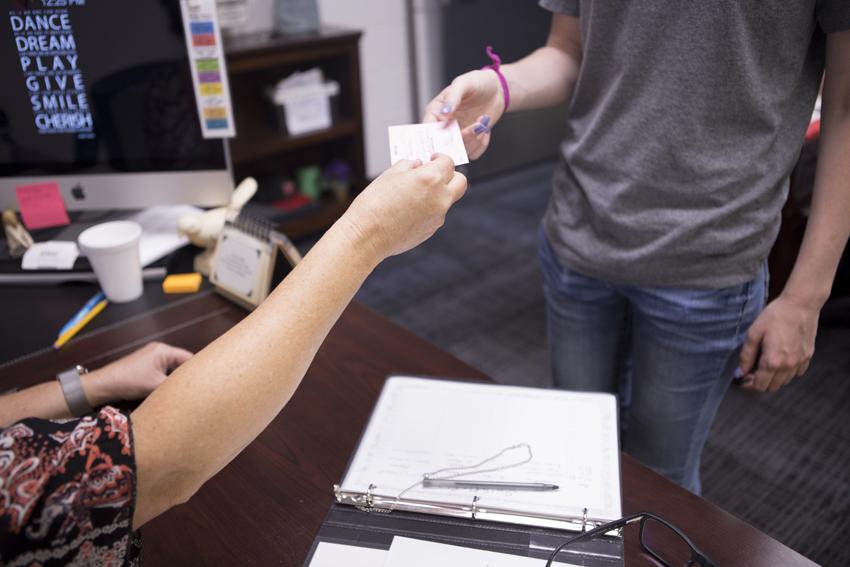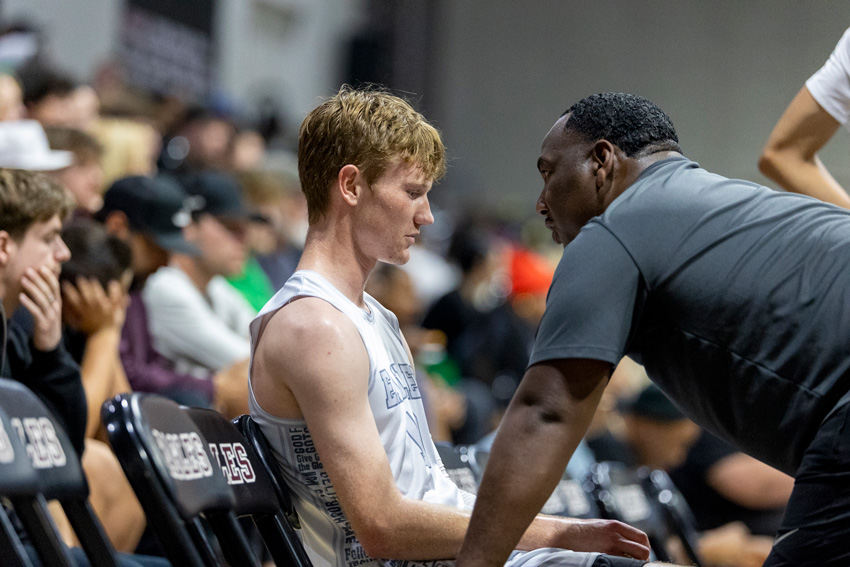Tardy policy teaches discipline, responsibility
Chairs line the campus hallways as student after student sits down to serve their time. Three or more tardies result in detention, a Friday lunch period of nothing but staring at the back of someone’s head.

The Fresno Christian student handbook states, “Students who are not in their assigned classroom when the bell rings are considered tardy…Every three unexcused tardies will result in lunch detention.” This policy exists so that students receive as much time to learn as possible.
When students show up minutes into a class, they lose valuable time that is hard to recover. Getting in the routine of tardiness produces habits that carry themselves into a future career, and there, the consequences are normally less forgiving.
English teacher on campus, Andrea Donaghe, observes academic setbacks and consequences when students arrive late to school. She suggests practicing punctual habits in high school so tardiness is not carried out in the future.
“When you arrive late, chances are the teacher has already started instruction,” Donaghe said. “There is respect shown when a student demonstrates that they value the teacher’s time. I can see when students come on time they feel more relaxed and ready to start the class. Eventually in the real world, you walk in late to work, are written up, and sometimes fired.”
While the punishment for three tardies at school is lunch detention, consequences in college or at work are far more severe. Missing a class or shift can result in expulsion, failure or getting fired.
Kaley Ratzlaff, receptionist at Wathen Castanos Homes, believes arriving on time to work prepares a person for the rest of the day. She experiences the disadvantages of being late and strives to arrive early to set a healthy routine.
“I notice if I am late in the morning I feel that stress carry over through the rest of my day,” Ratzlaff said. “I also want my bosses to see that I value their time and I don’t want to waste it by being late. If tardiness is a consistent problem you could get written up or fired.”
Arriving on time to school benefits students in more ways than they realize. According to Little Things Matter, arriving on time suggests you are dependable and trustworthy while building self-confidence and success.
Senior Alyssa Melillo works as a private tutor for students three days a week. She understands her students’ time is important and showing up early teaches responsibility and shows respect.
“I try my best to arrive on time each time I go to work,” Melillo said. “I know we both have very tight schedules so showing up on time or before shows that I respect their time. Overall, being late to school and work is just negative because it gives off a poor impression.”

A firm believer in being on time, former Chick-fil-a manager Adam Olivares, recognizes being on time produces long term benefits. He believes arriving early or on time to a job prepares the mind and body for the day’s work.
“I think like any other part of the job, arriving on time is just another way of being ready to work,” Olivares said. “I always like to tell people that if they are arriving early or on time, they are getting themselves in the right state of mind to serve the customers. When you are in the mindset of feeling rushed and late, you can be out of sorts for the rest of your shift.”
Arriving late to places that you have committed to brings consequences that go beyond the classroom or work space. Learning to keep a disciplined schedule and motivated mindset helps to prevent the habit of tardiness.
For more articles on tardiness, check out FC enforces tardy policy, no exeptions. For more articles, check out The Feather takes NYC 2018: Day 2 Recap.
Addison Schultz can be reached via email: Addison Schultz and via twitter @SchultzAddison.




